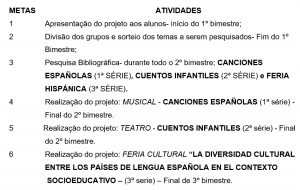ORIGINAL ARTICLE
SANTOS, Géssica Brito [1]
SANTOS, Géssica Brito. Becoming and writing in the philosophy of Deleuze and Guattari. Revista Científica Multidisciplinar Núcleo do Conhecimento. Year 06, Ed. 01, Vol. 05, pp. 191-204. January 2021. ISSN: 2448-0959, Access link: https://www.nucleodoconhecimento.com.br/lyrics/becoming-and-writing
SUMMARY
Writing is always unfinished because it is always producing new relationships of multiplicities and because it holds an utterance that speaks for itself. It is impersonal because it has the ability to create artifices to combine new utterances, whose center is not the individual, but all the relations of agencies that exist around him and other agents, relations man and nature, man and time, man and object. This is the idea of deterritorialization of writing defined by the French philosophers Gilles Deleuze (1925-1995) and Félix Guattari (1930-1992). This article aims to ascetheify to what extent literary writing can be understood as a case of becoming. In comparison to the analysis of the concept of becoming and how literature is crossed by this philosophical thought, we will discuss the work Moby Dick (1851) by the American writer Herman Melville (1819-1891), an example widely used by the authors themselves in books such as Thousand Plateaus – Devir-intenso, Devir-animal, Devir-imperceptible (2012) and Criticism and Clinic (2011). The article is based on a bibliographic investigation and is based on structuralism as a methodological resource.
Keywords: Becoming, literature, agency, deterritorialization.
1. INTRODUCTION
The concept of becoming took shape when Gilles Deleuze met his friend Félix Guattari in 1968, and the two set out to create a prolific partnership. Together, they wrote four books, The Anti-Oedipus (1972), Kafka. For a smaller literature (1975), Thousand Plateaus (1980) and What is philosophy? (1991). Thus, from this partnership emerged a new way of thinking about the individual and his/her relationship with nature.[2]
The anthropological view of the concept of becoming defended by Deleuze and Guattari, which allows the approximation of the origins of human nature and its relations with animal nature, is taken as a formulation to understand this concept as crucial to other areas of knowledge, since the becoming seeks to explain human relations. The element that most seems to approach the understanding of man and the world is language. So thinking about becoming means thinking about language.
With regard to fictional writing, the becoming translates as rupture and settlement. Attributed to this, one observes a series of aspects that involve relationship work and author, production and agency. The work is seen as a cartographic map, crossed by a multitude of affections and agencies. The author, in turn, is the product of this agency and tries to conduct his work in an impersonal way, adopting an enunciative, collective and deterritorialized language, in which the invention of multiple relationships is tolerated. The sections of this article deal with this discussion.
2. THE CONCEPT OF DEVIR: PACT, DETERRITORIALIZATION AND AGENCY
In literature the becoming can be understood in several ways. From the experimentation of language, the devir-other of the language, the creation of a foreign language, from the style of the writer and the fabulation. However, all these elements culminate in a single purpose, the deterritorialization of writing. “Writing is a case of becoming” (DELEUZE, 2011, p. 11), because writing is a territory for the author to produce new alliances and utterances.
In Thousand Plateaus – Devir-intenso, Devir-animal, Devir-imperceptible (2012)[3], Gilles Deleuze and Félix Guattari illustrate the issue, taking as an example the book Moby Dick[4], by Herman Melville. Captain Ahab, the protagonist of the book, and Moby Dick, a sperm whale that distinguishes itself from the other by unusual characteristics to an animal, maintain a neighborhood border, which deterritorializes both man and whale. That is, they come out of the common environment: the sperm whale of their animal nature and Captain Ahab of their human nature. Deterritorialization, for the authors, is responsible for the devir-whale of Ahab and the devir-man of Moby Dick.
Deleuze and Guattari (2012) signal that the escape line can be understood as a way that agents have to dissociate themselves from what they are, and move to a new creation, but that is not conclusive since it is moving, nothing is definitive. Propagation is a transmission and a way of populating things with new relationships. There is a perfect conception for how the becoming arises, by transmission or settlement, and not by something that is affiliated or repeats.
Moby Dick has an anomaly that makes him differentiate himself from other whales and also allows him to be affected by the powers of a devir-man. Captain Ahab chooses her for a subversive pact and saddles the whale with a strange “non-human” attraction, a symbiosis relationship. Contact with the whale allows Ahab to establish an affection that disorganizes the entire standard hierarchy that one has from the individual relationship and nature.
It is from this capacity of irregularity and leakage that the result in writing occurs. The becoming originates from the power of agents who for some cause come out of an agency, entering deterritorializations or escape lines. The future will depend on the posture of this agent, of this machine in potentiating a rupture against the power agencies. In Moby Dick this irregularity can be noted from the elements of writing, such as fabulation and the style of the writer. Thus, the literary utterance converges to what is innovative in literature and to what will somehow have repercussions on collective language. When Deleuze and Guattari speak of “the invention of a people that lacks”, they speak of utterances that are produced in literature, and come out of it serving as a new form of expression, than to say and than to think.
In the book, the character Ahab makes room for the “favorite”, the anomalous. “[…] Captain Ahab has an irresistible whale-becoming, but that rightly skirts the pack or the shoal, and passes directly through a monstrous alliance with the One, with the Leviathan, Moby Dick.” (DELEUZE; GUATTARI, 2012, p. 21)
The character is attracted to the “thing”. This means that Captain Ahab’s attraction takes into account not only the whale, but the powers that start from this relationship. Therefore, we must think that there was an attraction for contagion between whale and man, very different agents.
The anomalous term for Deleuze and Guattari is defined as a “thing”, a figurative sense of something that cannot be defined, precisely, because of its indiscernibility. So, it can be said that the becoming is populated by these foreign agents who are part of a group, or pack, and who stand out for being able to trace curves and fissures in their groups.
According to Deleuze and Guattari:
[..] what is the nature of the anomalous, for sure? What role does he have in relation to the pack, the pack? It is evident that the anomalous is not simply an exceptional individual, which would be referred to the family or family animal, edipianized in the manner of psychoanalysis, the image of father…, etc. For Ahab, Moby Dick is not like the kitten or the puppy of an old woman who covers him with attention and the paparica. (DELEUZE; GUATTARI, 2012, p. 22)
In this passage, Deleuze and Guattari look at what escapes the idea of affiliation. There is to come in the relationship whale and man because this relationship is not determined by the similarity between the agents. The authors draw attention to the fact that domestication is characterized as an imitation that the animal makes of man when he lives in a friendly way with him. The whale is not a domesticated animal, so it has the ability to emit all the powers of the animal.
However, “writing is essentially in the act of rupture, in the course another that may be the becoming woman, the animal or vegetable, but which is in any case a becoming-minority, of simple neighborliness […]” (DOSSE, 2010, p. 354). It can be said that in Moby Dick, the white whale enters a neighborhood area with Captain Ahab. This is because, it captures intensities that come from man and goes through an edge phenomenon when it demonstrates human characteristics. Moby Dick assumes human characteristics by expressing anger, a sense of revenge, resentment for whalers and Ahab. The feeling of fury in a lucid and calculated way of the sperm whale signals a deterritorialization. In turn, Captain Ahab is a cold man who nurtures an obsession with the Whale Moby Dick and who spends all his time dedicated to architecting means of capturing the mammal. The whale, anomalous, intelligent and vengeful, initiates the pact with Captain Ahab, passing through a devir-man. Deleuze and Guattari note that it is not fitting in the narration an imitation between whale and man.
It is perceived that the work Moby Dick serves as a reference for Deleuze and Guattari to elucidate the process of fictional creation and all forms of agency and power of the author in contact with his text. In view of the perspective raised by the authors, Herman Melville’s literary production is formulated as a carrier of a deterritorializing language, to which singularity (rupture, delirium and style of the writer) converges, and the search for new utterances (fabulation and creative power).
Thus, the fictional work, whether in the production of new relationships perceived within fiction and the inventive capacity of the language by the author, or the political dialogue that it can assume abroad, is conditioned to a basic concept, writing becomes ground for new settlements. To write so that it is not only his life story, of the “author absorbed in his dreamy mystifications, but that of making us feel the approach of a strange power, neutral and impersonal.” (BLANCHOT, 2005, p. 139).
What is perceived in a smaller writing, the one that is crossed by the future, is that characters, narrator and writer are positions, are machines that represent a collective. You can’t think of the character’s name without thinking about the agency he represents. Birman (2000) commenting on the concept of becoming in Deleuze and Guattari recalls that:
Literature is inhabited by flows, intensities and affections that transform the family language into a foreign language. Thus, the subject will only be apprehended as such detached and released from the record of the personality of the I. (BIRMAN, 2000, p. 477)
Birman states that when one “invents a people” or when one speaks in a foreign language, expressions used by Deleuze and Guattari to explain the author’s creation process, it is when a collective vision emerges, in which, the utterance produced by literature, that of speaking of all and everything devoid of oneself, seems to have a more preponderant place. Therefore, writing would be to go through intensities of potencies forcing language, content taking and expression, to go to another level of language other than common. According to Birman (2000, p. 477):
The fabulation would therefore be the power itself in the act, which would translate the language instituted as foreign. Thus, writing assumes not only the decomposition of the mother tongue, but also “the invention of a new language within the language, by the emotion of syntax”.
In the smaller literature the style is always political, as if commanded by a revolutionary desire that part of all machines that are part of enunciative agency. For this reason it is that Deleuze and Guattari (2002) see the writer also as part of this machine:
A writer is not a man writer, is a political man, a machine man, and is also an experimental man (who, in this way, ceases to be a man to become a monkey, or coleptero, dog, rat, animal, becoming inhuman, because, in fact, it is by voice, it is by sound, it is through a style that one detems from animal, and certainly by the force of sobriety). (DELEUZE; GUATTARI, 2002, p. 26)
The observation of Deleuze and Guattari is that the writer ends up producing collective agencies in literature because he himself is the product of one or more agencies. Agencies are always collective, as the author recalls in Diálogos (1998), because they form groups, multiplicities. With each work written, the writer enters a line of escape, which allows him to forget everything that was, forget the memories, and become what he writes, make his writing distant from himself, and close to a collective idea.
Thus, the author is translated as a machine, moved by a power that is impersonal and that has an enunciative agency that can be nothing but collective. During literary creation, the artist goes through this moment of intensity, and what is seen in the work is the meeting of devires, singularities and potentialities, such as the flight of ahab’s veravan in Moby Dick, an “irresistible” force explained from man’s alliance with the whale. Such a narrative is loaded with a power, which involves how we believe in what is told.
3. THE DEVIR-MINOR OF THE LANGUAGE
The literature for Deleuze and Guattari is crossed by a devir-minor of the language that allows the writer to create a style, a foreign language that is characterized by the gaps that can be opened in language. The writer has the ability to open breaks in literary production, to invent a foreign language, “to be in his own language as a foreigner.” (DELEUZE; GUATTARI, 2002, p. 54). This involves creating your own “agramatical” shape.
A language is crossed by escape lines that conduct its vocabulary and syntax. And the abundance of vocabulary, the richness of syntax are only means at the service of a line that is judged, on the contrary, by its sobriety, its conciseness, its abstraction: an unsupported involutive line that determines the intricacies of a sentence or text, which crosses all redundancies and breaks the figures of style. It is the pragmatic line, of gravity or speed, whose ideal poverty commands the wealth of others. (DELEUZE; PARNET. 1998, p. 136)
In this excerpt, Claire Parnet and Deleuze highlight syntax as a way to explain the deviation of what is standard in writing. Writing in a foreign language as a becoming minor of the language does not imply the departure from one mother tongue to another, but rather a smaller, deterritorialized language inscribed in the mother tongue. According to Parnet and Deleuze (1998), the rupture in literature consists of an escape line that causes the writer to break with the patterns of language and writing and create his own way of writing.
The writer often does this as to explore a paradox by an “agrammatical formula”[5]. A clear example of deviation in the language that culminates with the creation of a foreign language is found in Bartleby the Clerk (1853), novel by Herman Melville. The character who gives name to the title of the book, has a very peculiar behavior when challenging the boss and everyone only with the phrase I would prefer not to[6]. Deleuze notes that:
The common formula would be before I had rather not. But above all the extravagance of the formula goes beyond the word itself: undoubtedly, it is grammatically correct, syntactically correct, but its abrupt ending, NOT TO, which leaves indeterminate what it rejects, gives it a radical character, a kind of limit function. (DELEUZE, 2011, p. 91)
Deleuze believes there is an “agrammaticity” in this sentence, a deviation because the English phrase disobeys the standard sense of the language that places it as a special case. As he points out, one sees in the sentence a limit function used by the character to approve or deny anything from it. Your sense will depend on the use that the character makes. The course is this new onslaught in the language, the foreign language, so that it will lead to a smaller writing.
In Moby Dick the deviation of the tongue is noticed in the whale anomaly, in the outsider. “Melville invents a foreign language that runs under English and drags it: it is OUTLANDISH, or the Deterritorialized, the language of the Whale.” (DELEUZE, 2011, p. 95).
According to Dosse “the smaller language is defined, therefore, by its hybridism within even the larger language” (DOSSE, 2010, p. 204). Thus, in writing enunciation is a devir composed of intensities that leads a larger language to house a smaller language, this smaller language, however, does not mean another language in terms of translation, but a new way of writing so that it is not by a model, to break into syntax with the standard language, forming an agrammaticality, with many deviations , giving the literary composition a state of escape. About this Machado (2009) points out:
Fundamentally, what interests Deleuze in the question of literary language is style as a new syntax that allows the writer to produce a devir-other of the language, a “delirium” that makes her get off the axes, from the tracks, that makes her escape the dominant system. Thus, he privileges in literature the way the writer decomposes, disarticulates, disorganizes his mother tongue to invent a new language, a language marked by a process of deterritorialization. As? Not by mixing different languages, but by means of a sintactic construction, of the creation of new, grammatical, signic powers — it would be even better to say anastatic, agrammatical — that gives it an intensive use, opposite to significant or significant use. (MACHADO, 2009, p. 207)
It is perceived that the lower future of the language is able to create an intensity that does not remain only in the syntax of the language. It is notedrawn that language powers make connection with one outside. Neither interior nor exterior, for Deluze and Guattari (2012) literature is this power itself that goes beyond these two zones.
For Ovid Abreu (2006) the minor literature defended by Deleuze and Guattari goes beyond a sintactic creation of language. It is a definition that offers a meaning that involves an out, involves a whole chain of enunciative expression agencies and all implicit sign regime that makes writing political and also enter into a revolutionary becoming:
The concept of minor literature has the following components: the power of language deterritorialization that allows the creation of a foreign language in the mother tongue itself; the immediate connection of the individual with the political, which goes through complex relationships with the experience of minorities; and the aforementioned collective agency of enunciation. In addition, the smaller literature is inseparable from a smaller treatment of the tongue. But none of this is achieved without an ever-renewed syntactic treatment: literature is, for Deleuze, syntax driven to an agrammatical boundary to reveal life in things. (ABREU, 2006, p. 204)
The syntax of the minor literature is one whose deviation comes from a writer’s style in creating a stutter in language. It’s not speech stuttering, it’s not a mistake, it’s employing a detour that makes the tongue go out of the pattern, and go for an out. It is to be able to pluck from an agrammatical deviation in writing a context that goes beyond what is written, and that breaks from language what is unsayable and leads to the feeling of alien.
This agrammatical rupture of the tongue by the minor literature is a kind of delirium. To write in another language, to divert the syntax so that a political context in language is reached, it is necessary this delirium. Delirium is the becoming, it is the creation of a style.
Deleuze and Guattari (2012) says that the writer takes language to the extreme[7] because of the presence of an impersonal. The impersonal ends up deconfiguring the language when finding in the undefined articles, a place of origin for individual terms that do not represent the staff, but agents who perform functions in agencies. In this sense, Deleuze and Guattari expose what is the act of literary creation, if thought of as impersonal:
So if it is like grass: it made itself of the world, of everyone, a becoming, because it became a necessarily communicating world, because it was suppressed from itself everything that prevented it from sliding between things, from bursting into the midst of things. The “everything”, the indefinite article, the infinitive-becoming and the proper name to which it is reduced were combined. Saturate, eliminate, put everything. (DELEUZE; GUATTARI, 2012, p. 64)
They point out that writer’s activity is collective; character is devoid of subject to assume a function, be seen as function for his group or pack. The writer himself is also a function, as we observe in the excerpt. The writer is responsible for his people, for bringing writing to the limits when writing “by” and “for” individual agents, writing about everything and having the work destitute of his person, not transforming the text into his own memories. It is true that the writer is crossed by influences in literary production, but the work created no longer belongs to him, belongs to an external eye. The work in this perspective is impersonal.
The writer is agency, produces a literature that is the result of agency. Everything he writes goes through the affections he receives, causing him to produce impersonal and collective writing. Thus, impersonal writing refers to what is undefined, it is not the i, because there is no subject. It is not then “I die”, but “die” (DELEUZE; PARNET, 1998, p. 77). You don’t have to be a child to write about one, this is where the impersonality of writing works.
Deleuze points out that writing is impersonal because it is not a private story, but collective agency.
Literature is only affirmed by discovering under apparent people the strength of an impersonal who is by no means a generality, but a singularity in the highest degree: a man, a woman, an animal, a womb, a child… The first two persons of the singular do not serve as a condition for literary enunciation; literature only begins when a third person is born in us who departs us from the power to say I (blanchot’s “neutral”). (DELEUZE, 2011, p. 13)
About this impersonal, it should be noted that, in French, there is the particle “on”, which is a personal pronoun. It is untranslatable. Generally, we see, for example, in the conjugation of the verb parler (to speak) together with “on”, “on parle” by “one speaks”, or “one speaks”, sometimes it seems to acquire the function of our “a” people”. In the case of [IL, “he” in French] Deleuze draws attention to the fact that in the French language the pronoun appears on occasions like “Il pleut”, which means “It rains!” (in Portuguese it is a sentence without a subject, which is grammatically inadmissible in French). In cases like the one mentioned, the “il” particle does not properly designate a person, a subject or a personification. As he writes in the passage, in terms of language, the first two people (me; you) are subjectivated because they refer to a self. The role played by the third person is not exactly the same in French and Portuguese grammar.
Deleuze and Guattari (2012) analyze the agrammaticity of some French words to prove how language converges to a rupture, so that it can be considered impersonal, because it becomes indefinite, without subject. The “on” of the French language is impersonal, it does not indicate a subjectivation. When we invoke “il”, the connection with a possible subject is lost, since, in the utterance, there is no internalization on the part of this untranslatable pronoun, different from the first two people, as shown by Deleuze and Guattari (2012):
The IL does not represent a subject, but diagrams an agency. It does not overcode the utterances, it does not transcend them like the first two people, but, on the contrary, prevents them from falling under the tyranny of the significant or subjective constellations, under the regime of empty redundancies. The strings of expression that it articulates are those whose contents can be brokered according to a maximum of occurrences and devires. (DELEUZE; GUATTARI, 2012, p. 46)
The authors indicate that from the syntax of language itself arises a deviation that triggers a literary impersonal. The “on” is pure singularity, because it is not subjective. The untranslatable pronoun may arise as a possibility to, in the act of literary creation, lead writing to new experiences of impersonal language.
René Schérer in Homo tantum. The impersonal: a policy, comments that the impersonal of the linguistic structure configured in the indefinite article and pronoun, leads language to distance itself from the idea of subjective body and dives into the idea of individuation when it defines that “this layer of the environment, this ‘between’, between words and things, this ‘neutral’, expressed or noemic sense, is the place of the impersonal or the plane that the impersonal unfolds”. (SCHÉRER, 2000, p. 27), because it is where singularity imposes on language a limit and establishes an agency in which the “one” represents a multiple, because it addresses an agent that is determined but undefined because it is seen as a function and not as a subject. Thus, the singularity in writing is this absence of subject that in no way compromises language because indefinite agents “one” and “he” appear [il; on]from it, and these agents are only recognized from a collective agency.
In the meantime, literature is to come because it constitutes an escape line for which life and writing are confused, guided by an impersonal. This impersonal is the deflagration of the collective, elimination of the self and, therefore, elimination of what is subjective. In short, writing is not interior, it does not produce by expressing a particular history. People, animals, natures are agents in organized agencies, are functions in agencies, are crafts, the writer is a craft. Writing develops from the particles that come from these agencies. What the future does is to capture particles of deviation from these minority elements, which form a collective in the greatest degree of settlement. The fact that the agent is not another, bordering on another, having only affections and desires as cause of movement, is that it produces a devir.
4. FINAL CONSIDERATIONS
This article addressed the statement made by Gilles Deleuze and Félix Guattari that literature is a case to come and that the language produced in writing is a collective agency of enunciation, in which the writer cannot tell the story of himself, but of a collective.
Thus, it can be concluded, stating that the relationship between literature and becoming occurs to the extent that we think of literature as a producer of our own utterances and when we imagine it as political, due to it being affected by agencies that come from outside to establish connection with the writing process.
Another determining point that is added to the idea of literature as a case of becoming is the fact that it presents a semantic and agrammatical escape. Thus, the language that disarticulates the dominant language is constituted as a minor language, which inserts it into a process of becoming. The smaller literature, in turn, would be that produced within a dominant language, by a minority, which tends to operate all these deterritorializations in the mode of expression. It involves a political language, not in the sense of protesting or reproducing patterns, but a revolutionary language that occurs by powers, and that can be considered a devir because it is a rhizomatic writing, produced in the midst of multiple relationships and multiple agencies.
REFERENCES
ABREU, Ovídio. Deleuze e a Arte: o caso da literatura. Lugar Comum – Estudos de Mídia, Cultura e Democracia. Rio de Janeiro: Universidade Federal do Rio de Janeiro – UFRJ. Laboratório Território e Comunicação – LABTeC/ESS/UFRJ – Vol. 1, n. 23-24, pp. 199-209, 2006. Disponível em: http://uninomade.net/wp-content/files_mf/110810121116Deleuze%20e%20a%20Arte%20-%20O%20caso%20da%20literatura%20-%20Ov%C3%ADdio%20Abreu%20.pdf Acesso em 24/09/2020.
BIRMAN, Joel. O signo e seus excessos: a clínica em Deleuze. In: Gilles Deleuze: uma vida filosófica. ALLIEZ, Éric (Org.). Coordenação da tradução de Ana Lúcia de Oliveira. – São Paulo: Ed. 34, 2000, coleção TRANS, 557 p.
BLANCHOT, Maurice. O livro por vir. São Paulo: Martins Fontes, 2005.
DELEUZE, Gilles. Crítica e Clínica. Tradução de Peter Pál Pelbart; São Paulo: Ed. 34, 2011.
DELEUZE, Gilles; GUATTARI, Félix. 20 de novembro de 1923 – Postulados da lingüística. In: DELEUZE, Gilles; GUATTARI, Félix. Mil Platôs: capitalismo e esquizofrenia. Vol. 2, Tradução de Ana Lúcia de Oliveira e Lúcia Cláudia Leão. – São Paulo: Editora 34, 2012. 2. ed. Coleção TRANS, 557 p.
______. Devir-intenso, Devir-animal, Devir-imperceptível. In: DELEUZE, Gilles; GUATTARI, Félix. Mil Platôs: capitalismo e esquizofrenia. Vol. 4, Tradução de Suely Rolnik. – São Paulo: Editora 34, 2012. 2. ed. Coleção TRANS, 557 p.
DELEUZE, Gilles; GUATTARI, Félix. Kafka. Por Uma Literatura Menor. Tradução e prefácio de Rafael Godinho; Lisboa: Assírio & Alvim, 2002.
DELEUZE, Gilles; PARNET, Claire. Diálogos. Trad. Eloisa Araújo Ribeiro, São Paulo: Escuta, 1998.
DOSSE, François. Gilles Deleuze e Felix Guattari: Biografia Cruzada; Tradução de Fátima Murad; revisão Técnica de Maria Carolina dos Santos Rocha. – Porto Alegre: Artmed, 2010. 440 p.
MACHADO, Roberto. Deleuze: A Arte e a Filosofia. — Rio de Janeiro: Jorge Zahar Ed. 2009.
MELVILLE, H. Moby Dick: ou a baleia. São Paulo: Cosac Naif, 2013.
______ . Bartleby, o escriturário; tradução de Cássia Zanon. – Porto Alegre: L&PM, 2017.
PARNET, Claire. O abecedário de Deleuze. Título original: L’abécédaire de Gilles Deleuze. Direção; Pierre-André Boutang. França: Tv arte, 1994.
SCHÉRER, René. Homo tantum: o impessoal uma política. Tradução de Paulo Nunes. In: Gilles Deleuze: uma vida filosófica. ALLIEZ, Éric (Org.). Coordenação da tradução de Ana Lúcia de Oliveira. – São Paulo: Ed. 34, 2000, coleção TRANS, 557 p.
APPENDIX – FOOTNOTE REFERENCES
2. Henri Bergson, Spinoza, Michel Foucault, Gilbert Simondon, Nietzsche, Sigmund Freud, Carl Gustave Jung, Stéphane Mallarmé and Maurice Blanchot are just some of the names that have influenced Deleuze and Guattari’s view of the subject, about body and nature, and the connection between agents, language and institutions of power.
3. The year of publication of its editions in Portuguese was used in the works referenced here.
4. Moby Dick (1851) is a novel by American writer Herman Melville and tells the story of Captain Ahab, commander of a whaling ship, titled Pequod, who invests in an irrational hunt behind a white whale named Moby Dick.
5. Cf. “Bartleby, or the formula”, present in the critical and clinical work written by Gilles Deleuze.
6. “I would prefer not” (we chose to use the translation found in the book Critical and Clinical).
7. Cf. PARNET, Claire. Deleuze’s abecedário. Original title: L’abécédaire by Gilles Deleuze. Direction; Pierre-André Boutang. France: Tv arte, 1994, p. 06.
[1] Graduated in Letters from the State University of Bahia.
Submitted: January, 2021.
Approved: January, 2021.





